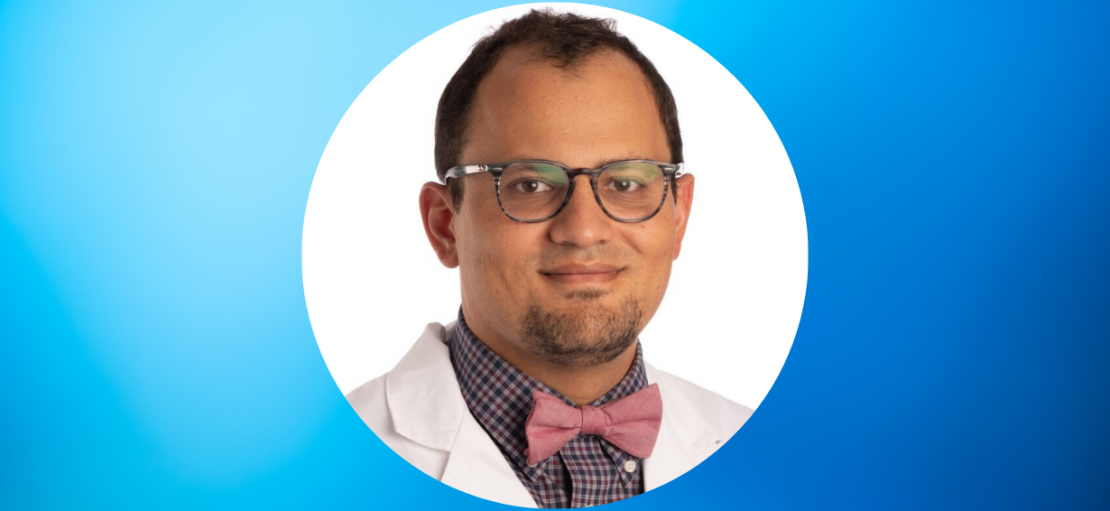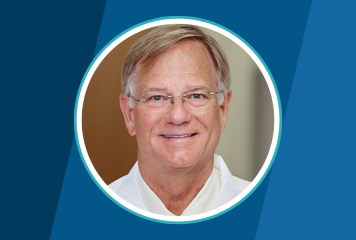Samer Al Hadidi, MD, MS (CRDSA), FACP, is an Assistant Professor of Medicine in the Department of Internal Medicine—Division of Hematology and Oncology at the University of Arkansas for Medical Sciences. His research interests include plasma cell dyscrasias and multiple myeloma with a focus on drug development, cellular therapy, immunotherapy, health equity and medical education. Dr. Al Hadidi joined the Hematology Board in 2023.
Tell me a little bit about your background and your path into medicine.

I am an international medical school graduate. I choose medicine for reasons similar to most doctors, which was to serve people and help them in their difficult times. After finishing up medical school at the University of Jordan, I decided to do an internal medicine residency in the Michigan. There I became interested in academic work and research, and I completed a master’s degree in clinical research design and statistical analysis. After that, I went to Houston, where I trained in hematology-oncology and I did my fellowship. Now I’m a practicing hematologist and oncologist at the University of Arkansas.
It was a long journey to the target goal, which was to become an oncologist and hematologist and to treat patients with blood cancers.
What was it like transitioning from Jordan to the U.S. as an international physician?
The training programs in the U.S. are excellent. I think the difficult part is the transition itself. When you come from another country, nothing is simple. You don’t have a credit history so things like finding a place to live, obtaining a driver’s license and a car to drive are not easy. For most of these things you need documents that international students don’t have—like a social security number—which makes it all a little difficult initially. And this is all on top of figuring out what you need to do for your residency. You’d think the hardest thing would be medical school or residency, but sometimes it’s all the other things surrounding it.
Why did you choose hematology/oncology?
For me it’s the subspecialty that carries the best doctor-patient relationship. You meet patients during one of the most difficult times of their lives and it’s a real struggle for them and their families. Sometimes, there are patients who go through this alone, and they lean on you more. All of your patients in this critical time need help in choosing the best treatment and medical decisions for them, including knowing when to stop treatment. You have to meet patients where they are and help guide them during a very, very difficult time and that is the most compelling reason why I chose to go into hematology/oncology.
Also, there are many promising developments and it’s exciting to have new options for your patients. When you see a patient undergo a new treatment that years ago they may not have survived, and they are cured you celebrate with them; it’s a joy to see their health improve. But you do this while also keeping an eye on patients who aren’t doing as well.
There are times when you go from one patient where things are going well, to another next door where the patient is not doing well. In the few minutes that you walk from room to room, you need to change how you feel and how you look as you approach that next patient. It’s a challenge every day.
How do you manage your grief over losing a patient?
Not all patients will survive cancer. And those patients, despite some of them living a long time, at some point will transition to comfort care and you will lose someone who has been under your care for a long time. This is always difficult and I don’t think it will ever get easier.
When it happens, I try not to get distracted with anything that I don’t like to do during that time, and focus on things that will make me happy. And I talk to people about it and then move on.
I was told by somebody, you should not share your emotions with patients, but I don’t think this is accurate or can be possible sometimes. If you have a family that is tearful, sometimes I have been tearful with them. You can try to be strong, but we are all human. Sometimes something hits you hard and you can’t help but to show emotion.
We all have to manage those times. It’s important to save some space for a personal life, family time and time off. And then you must develop strategies so that when you’re having time off, you’re just off. You don’t think about work.
And I think most of us who like what we do and know that there is a purpose to our work and we still have some joy in what we do, even in the difficult times.



